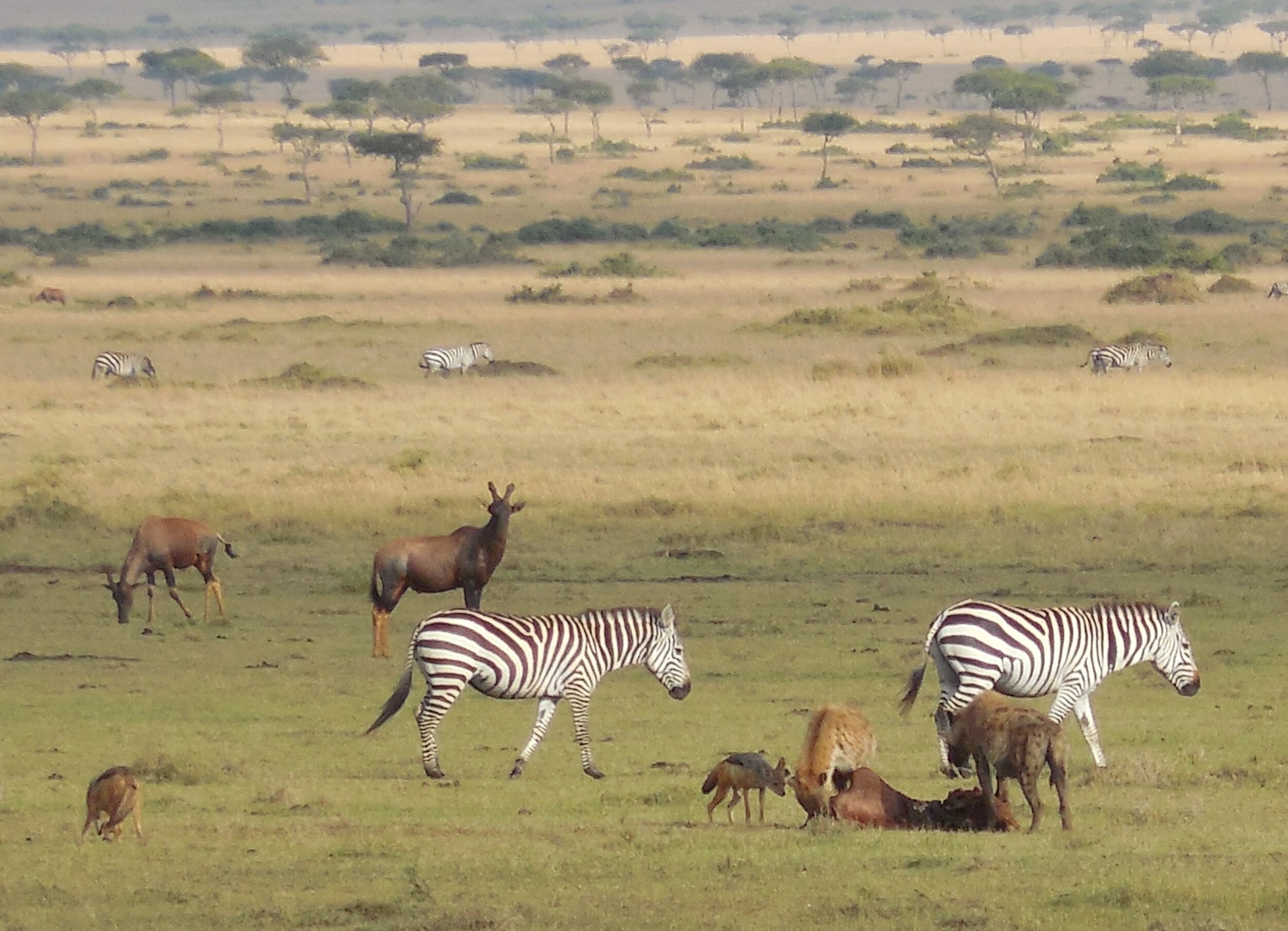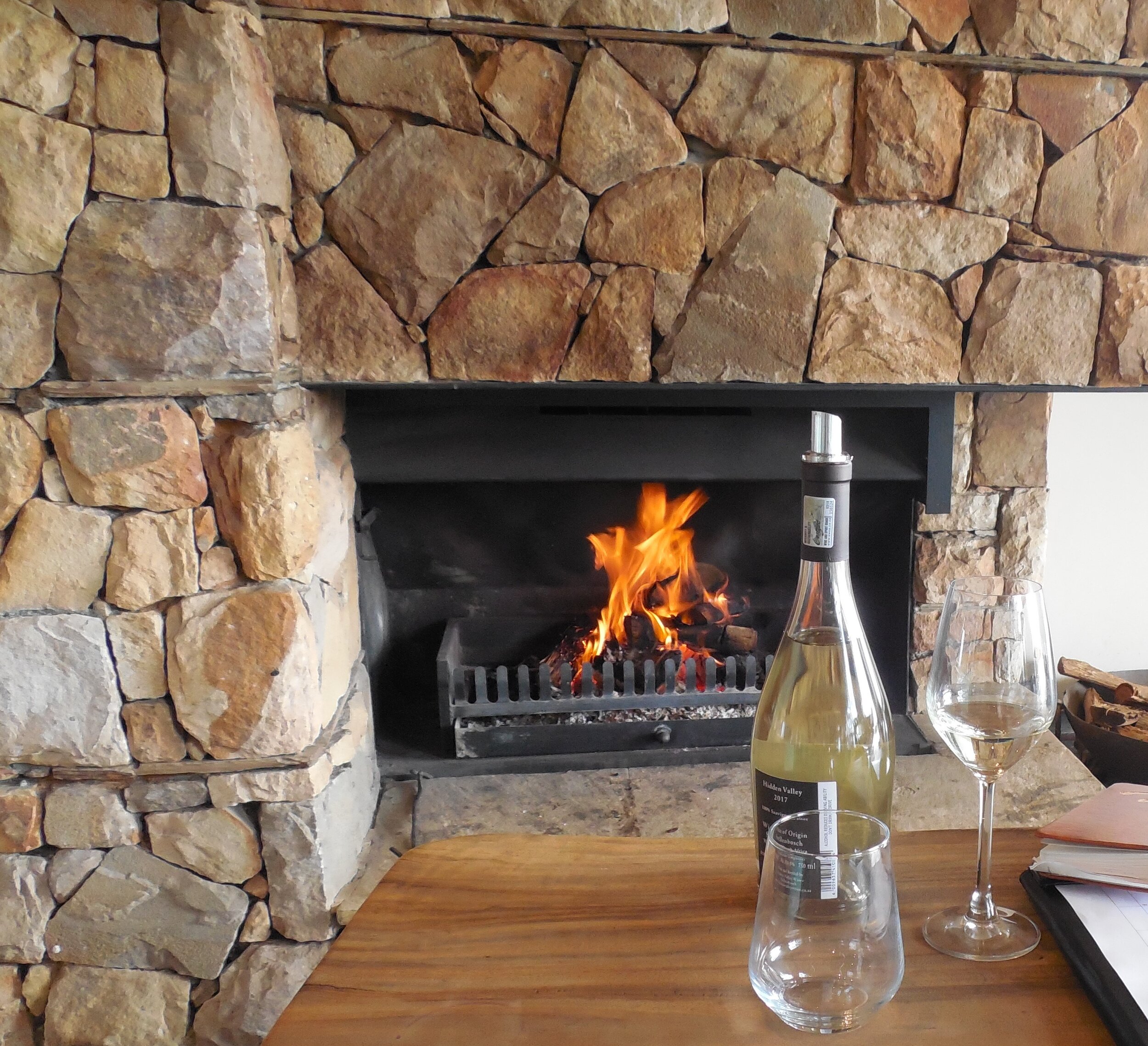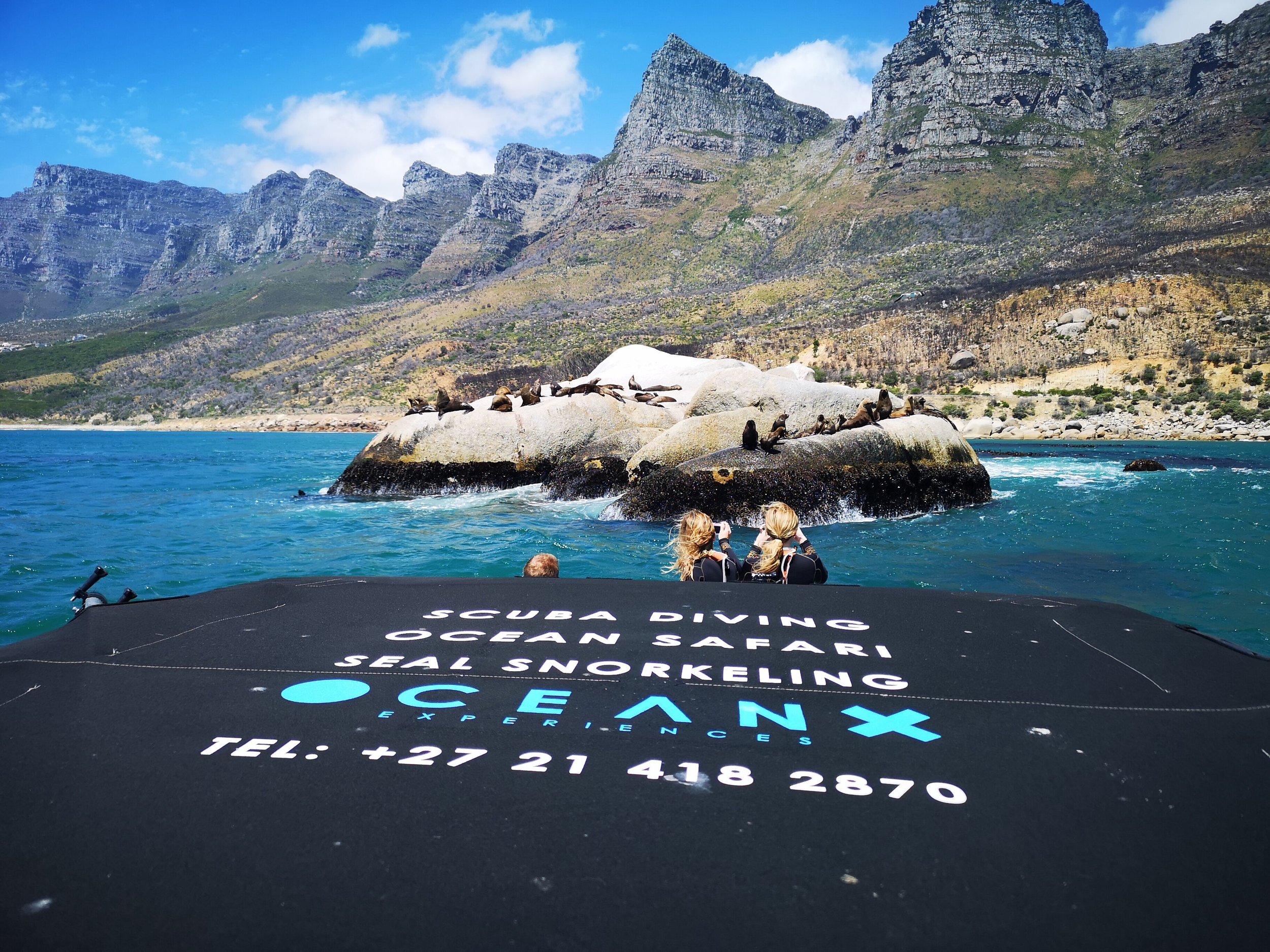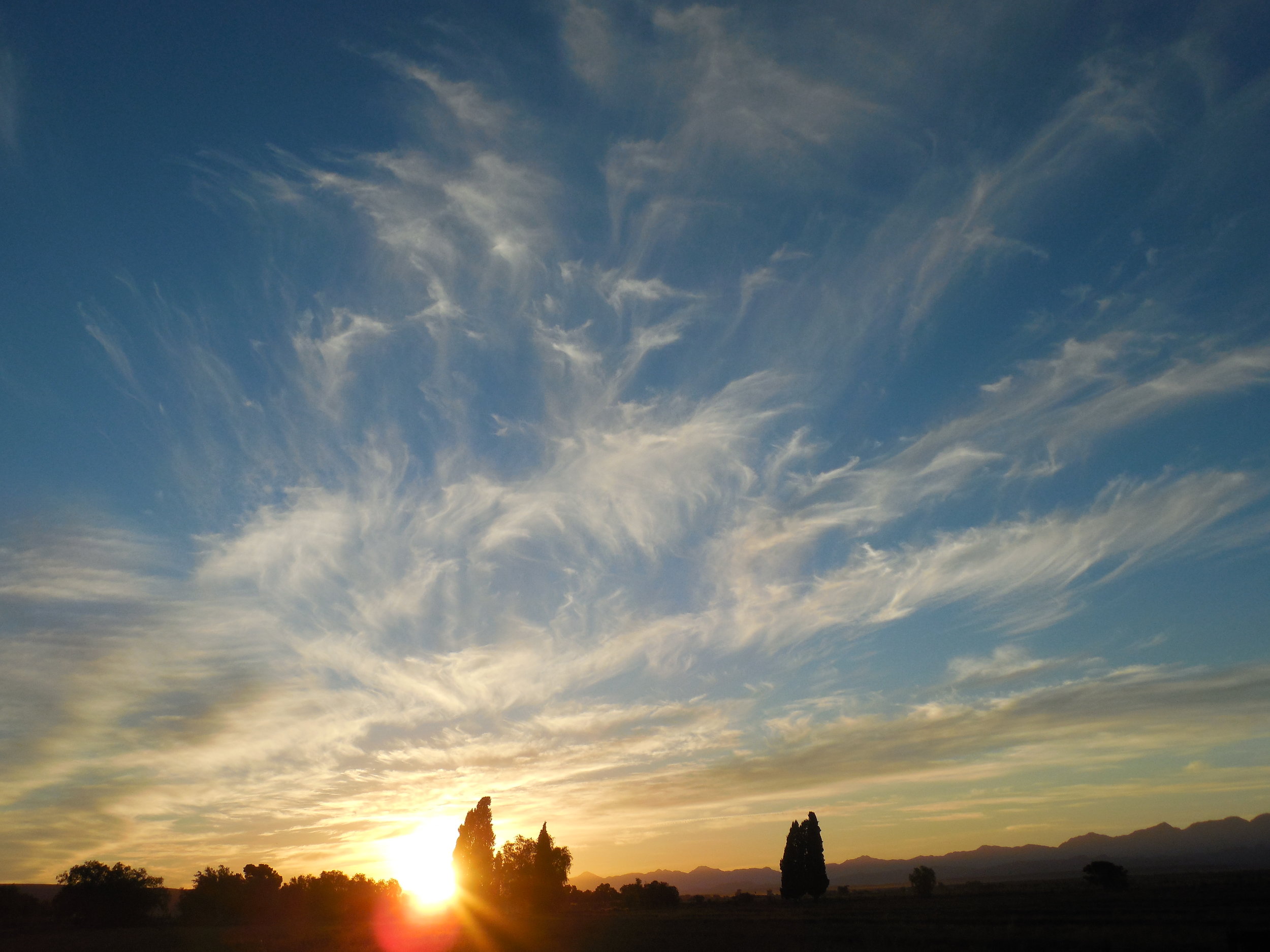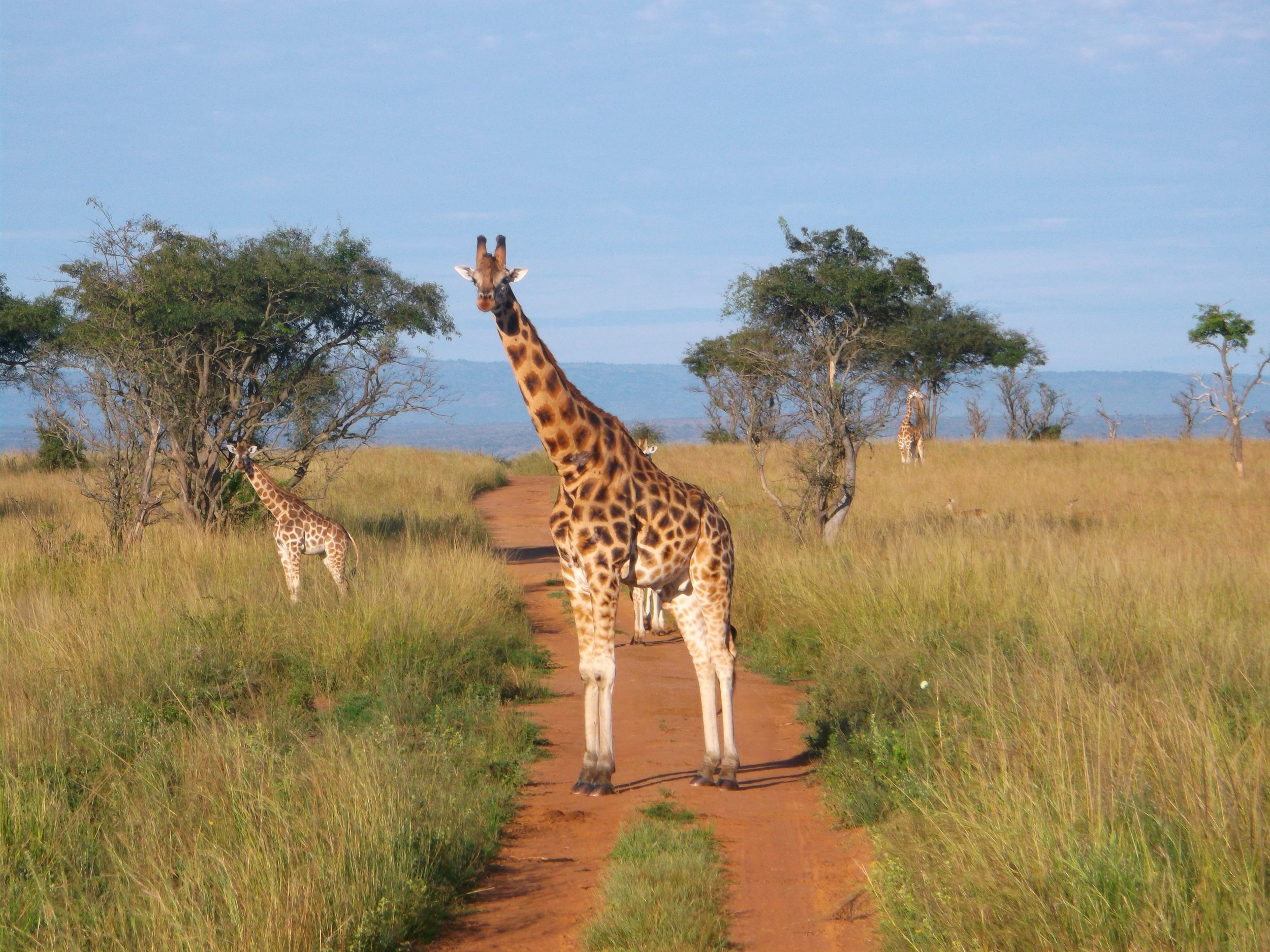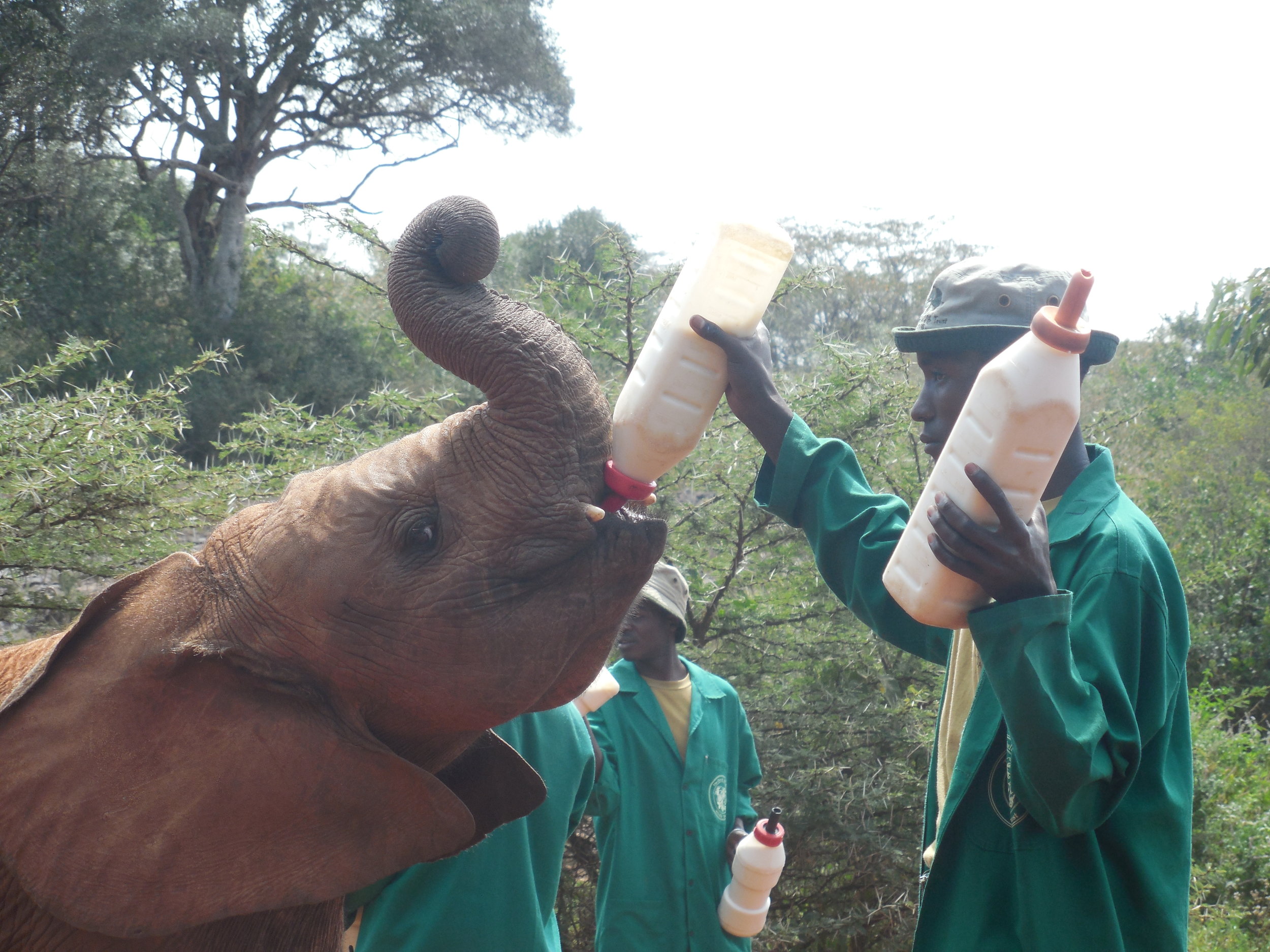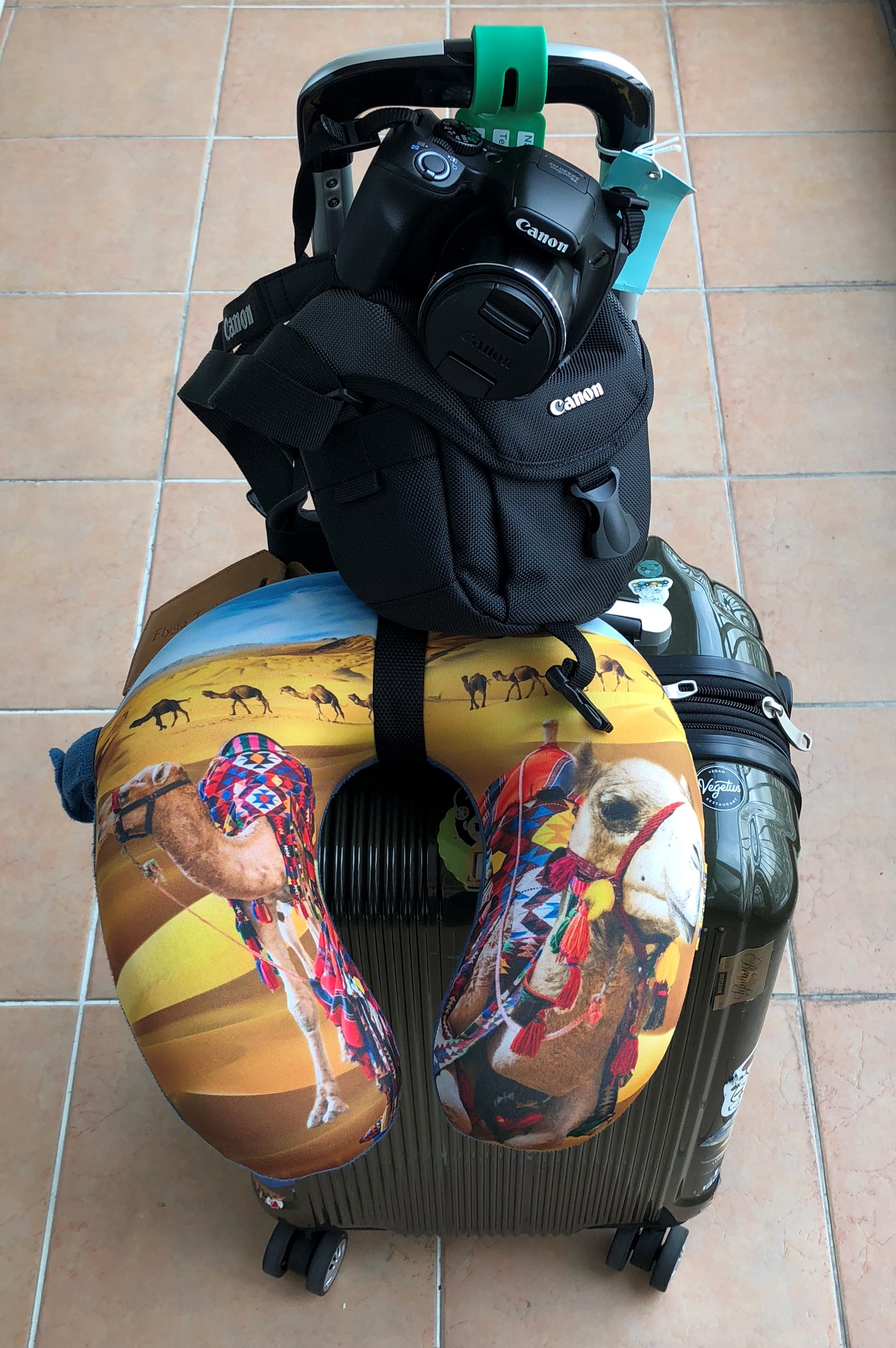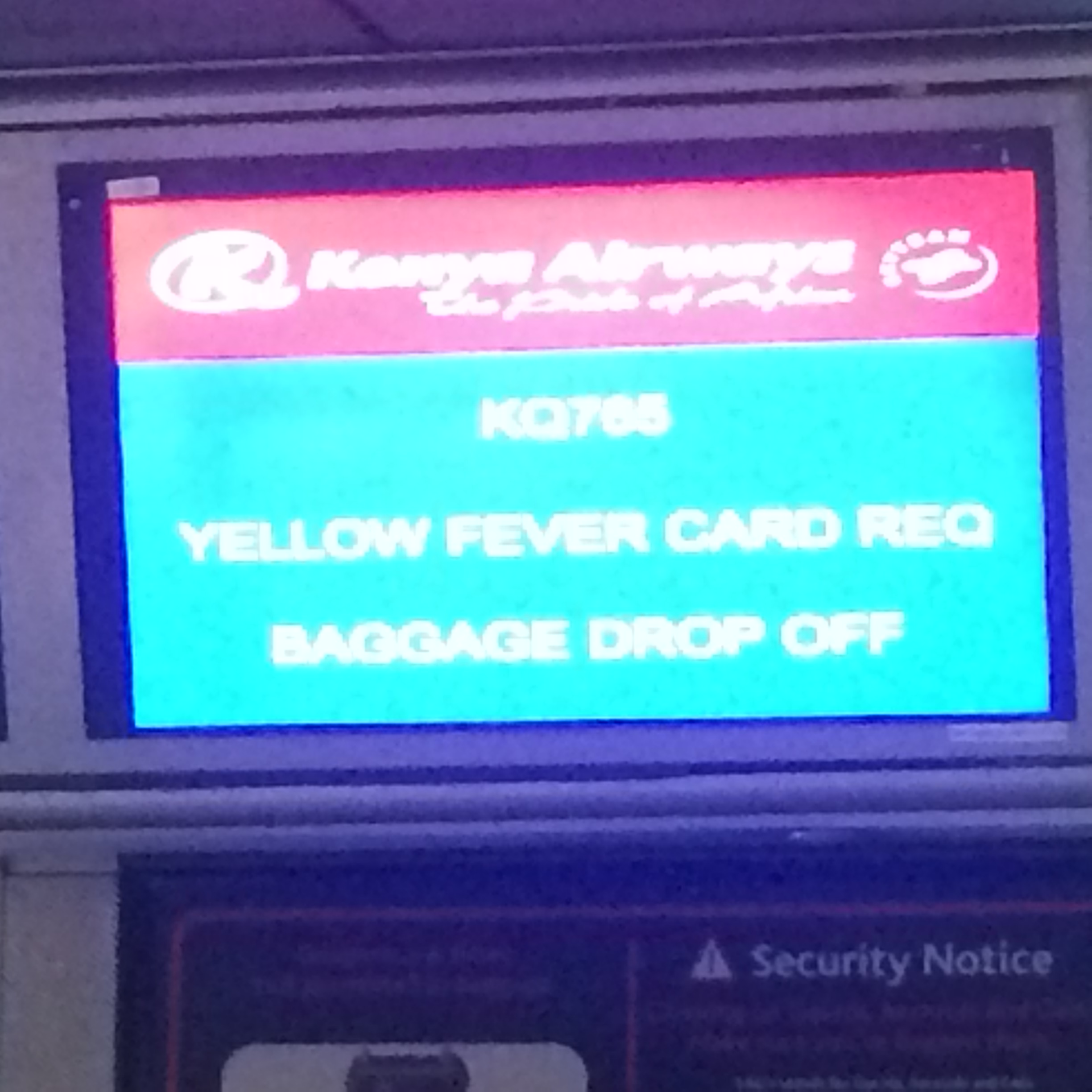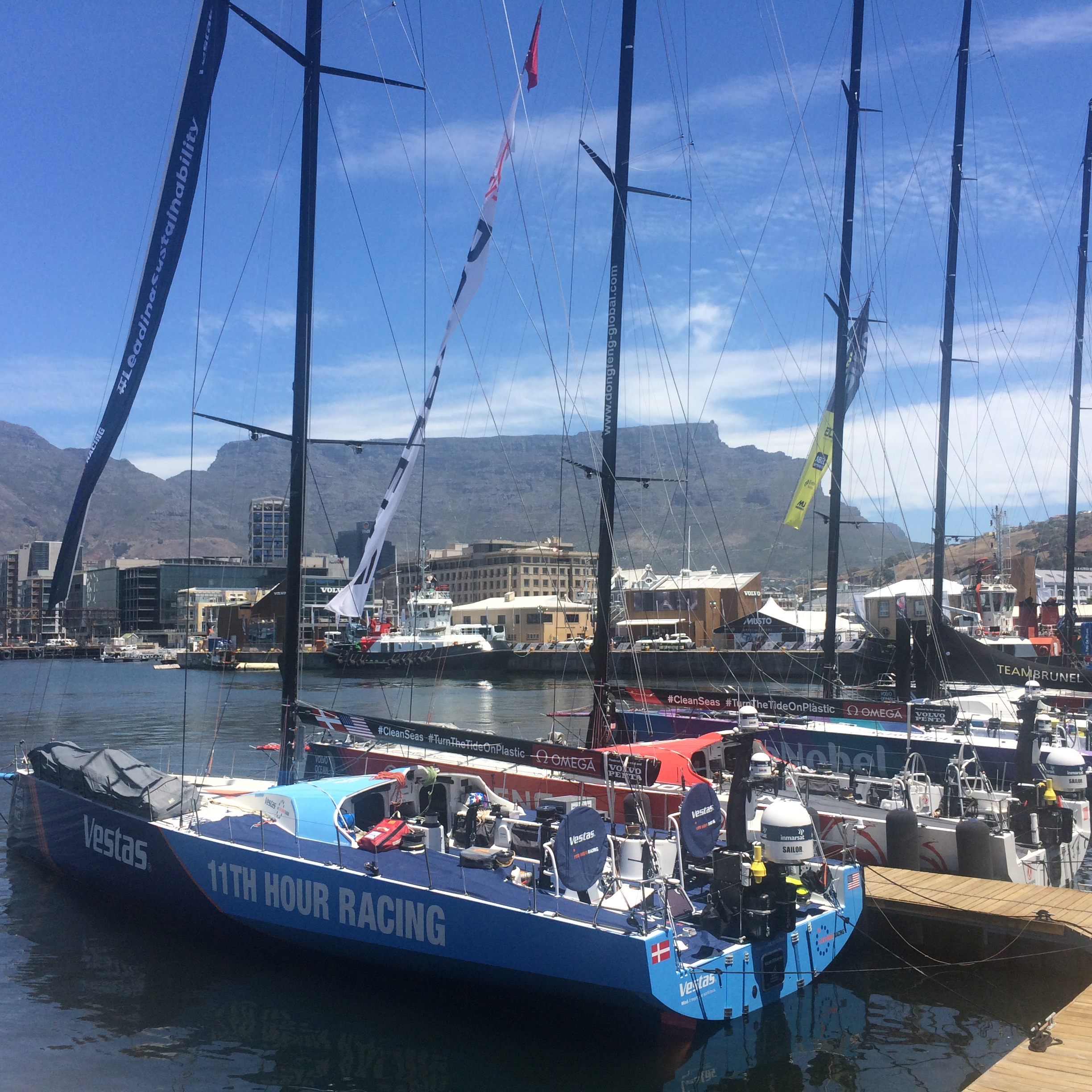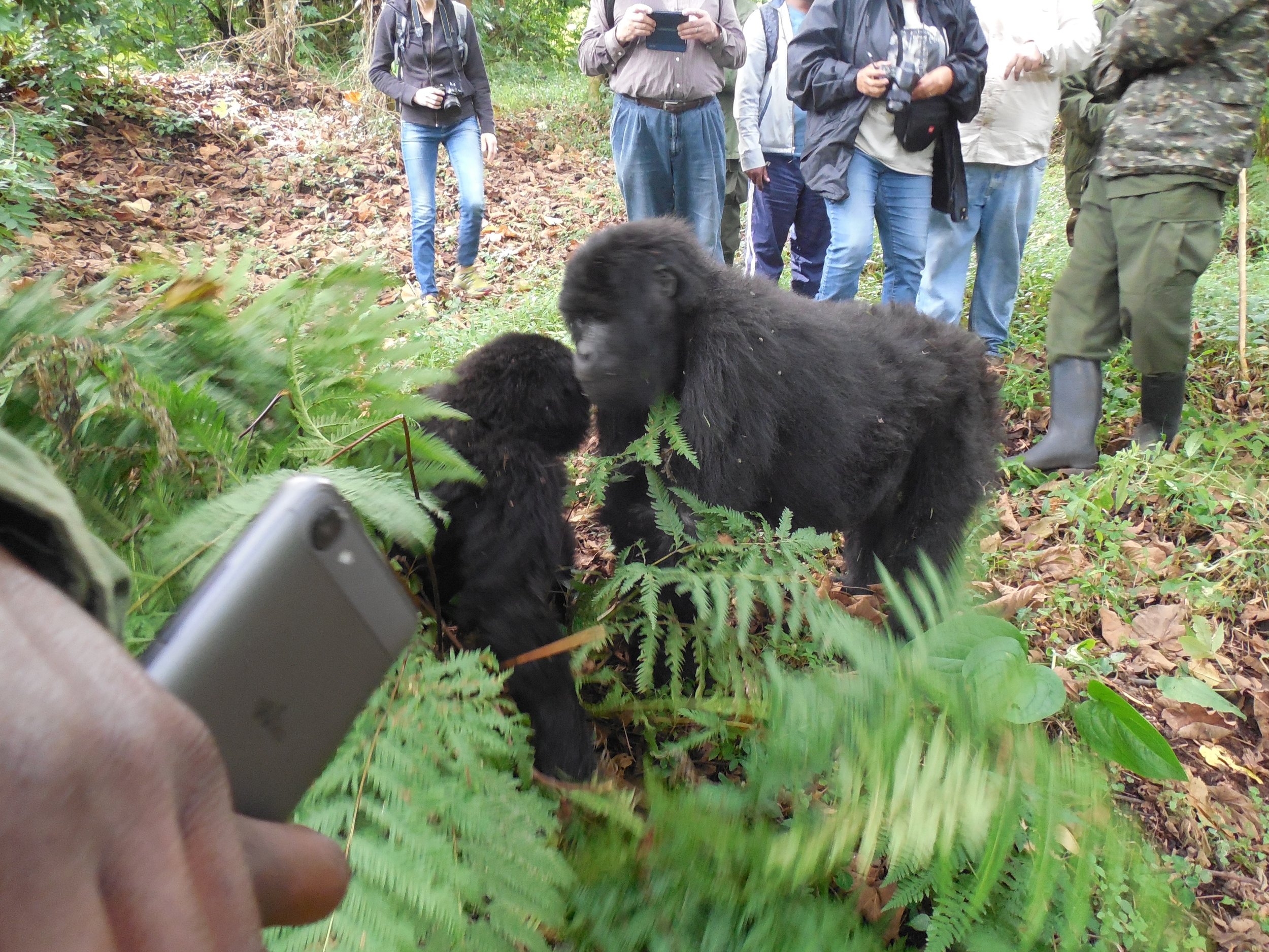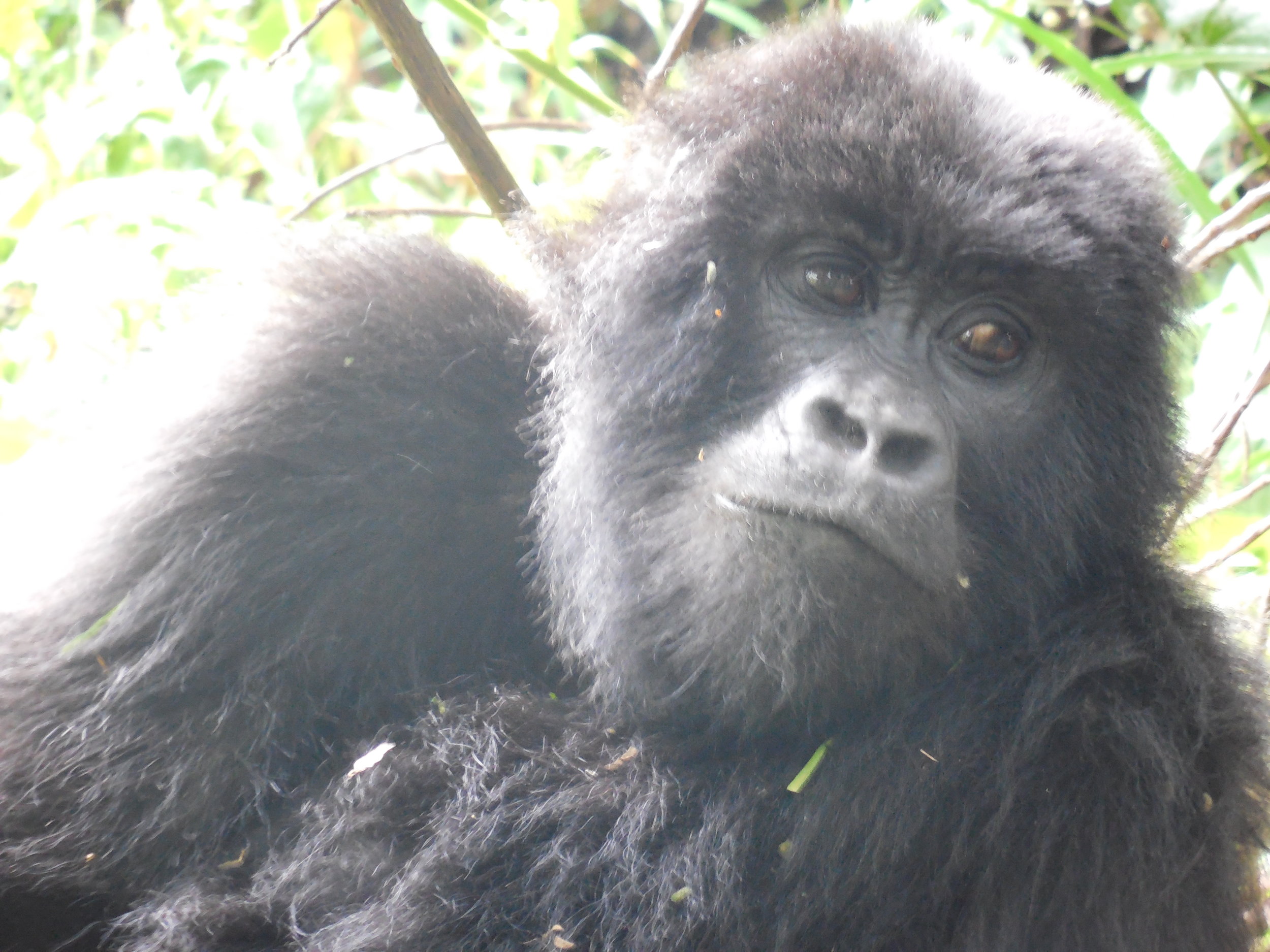#TravelTuesday 1st Time in a Bush Plane? Kait Hanson, of Communikait, Shares Her Experiences on Kenya's Safarilink
Kenya Bush Plane©Communikait Used with permission.
Ever wonder what it is like to fly in a Bush Plane?
Click here to read Communikait’s Kenya Bush Plane Review.
Any questions? Feel Free to Leave them Below!
#TravelTuesday 5 Distinct Safaris - When to Go and When to Book! Safari Guide
Sunset Amboselli National Park Kenya ©Flyga Twiga™ LLC
One of the questions I am most frequently asked is “when is the best time to on an African Safari?” As I always say, it depends on what you want see.
Gorillas? The Big 5? Great Migration? Cultural Experiences? Wine Tasting? Helicopter Rides? Train Travel? Surfing?
The question I dread the most is someone asking about booking a Safari last minute – especially for High Seasons and the Great Migration. Here are five distinct Safaris and when to book.
If you still have questions, I am happy to answer them & you can contact me here.
Maasai Mara, Early Migration Starting in Kenya 2014 ©Flyga Twiga™ LLC
Kenya Great Migration
Many who grew up watching National Geographic® have their hearts set on seeing the Great Migration. One of the largest and most famous mammal migrations on the planet sees the vast herds following the rains for the grasslands.
In Kenya, a country known for its magical beauty and hospitality, this migration takes place in August through October. The Great Migration can begin early and thus the herds start transiting into Kenya earlier than August. Kenya’s High Season for the Great Migration begins July 1st.
The most important aspect of planning your bespoke Kenyan Great Migration Safari is being aware that Lodges start booking over a year in advance. Last minute bookings can be extraordinarily expensive. So, planning your personal and unique Great Migration Kenyan Safari should start at least a year before you plan to travel.
Maasai Cultural Experience ©Flyga Twiga™ LLC
Kenya “Low Season” aka “Perfect Season”
If you have a vision of being alone out on the Savannah, with the total quiet of just you and the animals, then the Kenyan “Low Season” may be perfect for you.
Running April 1st through June 30th and November 1st through November 30th, this Season offers less crowds. Hotels, Lodges, Restaurants, Museums, and National Parks are less crowded. And, Lodges are often more open for shorter notice bookings.
Part of having less crowds can also offer more opportunities to engage in one-on-one Cultural Experiences. Also, the famous Tea and Coffee Plantation Tours are easier to obtain.
Add to this your overall “bang for your buck” and I personally think this is the Perfect Season for a Kenyan Safari.
Mossel Bay South Africa ©Flyga Twiga™ LLC
South Africa Summer
It is important to remember that South Africa is in the Southern Hemisphere. Thus their Winter and Summers are the opposite of those in the Northern Hemisphere Countries, such as United States and South Korea.
A “Winter’s Getaway” is an inspiration for many who travel to South Africa Summer Safari. Leaving the cold and snow of Winter and traveling to the warm South African beaches or the vibrant vineyards in full bloom, in addition to seeing “The Big Five”, tantalizes many travelers.
It is important to note that many others have the same idea. Lodges and Game Reserves book up quickly and accordingly. Thus, planning should be made well in advance. It is not unheard of for flights and hotels to be book far ahead of the South African Summer.
Seeing the animals during the height of a South Africa Summer, combined with the beaches, wineries, and spectacular weather makes it a great time to Safari.
Wine Tasting South Africa ©Flyga Twiga™ LLC
South Africa Winter
South Africa has a temperate climate. So, South African Winter Safaris offer a different experience in seeing the animals. With the grasses on the Bushveld dry and less, spotting animals in this Season can make for spectacular photographs.
Part of this exceptional experience may be chilly mornings and evenings. Often on South African Winter Safaris, early morning Game Drives will start with blankets and hot water bottles. Evenings may be spent cozying up to a fire for an evening Braai. Romantic indeed!
There are often less crowds in the Wineries for tastings during this Season. And, the costs and lead time needed for planning can be less.
As with all Safaris, planning well in advance gives you the most options and choices. It is all about what your vision for your special Safari!
Uganda Gorilla Trekking
As Gorilla Trekking is one of the most exclusive and exciting Safari Experiences there is, it would be easy to say “it is always a good time to go Gorilla Trekking!” It seems the Uganda Wildlife Authority picked up on this. They have just changed their system to a flat fee for Gorilla Trekking Conservation Tariff, to begin July 2020. The new fees may be found here.
High Season in Uganda is considered January through February, and all the months of June, July, August, September, and October. With Low Season being the entire months of March, April, May, October, November, and December.
Planning for Gorilla Trekking in Uganda should be done as far in advance as possible. Each National Park only offers only a set amount of Gorilla Trekking Permits each day. And, while there are always tales of people who “just arrived in the country and got the permits there” it is, in my opinion, foolhardy to run the risk.
And, one of the most important considerations is one of my most favorite parks in the world, Mgahinga Gorilla National Park, only has one family. So, if your “Gorillas in the Mist” dreams include a specific family, please take that into consideration for when to go and when to book your Gorilla Trekking.
Again, if you have any questions about what this blog post and your African Safari, please feel free to contact me. I love talking about Safaris and sharing my passion for Africa’s Wildlife with you!
Twiga in Uganda ©Flyga Twiga™ LLC
#TravelTuesday My Magnificent 7 - New Finds in South Africa #WTMA19
Aquila ©Flyga Twiga™ LLC
This year I was surprised to find 7 new experiences in South Africa that truly are extraordinarily unique. Ranging from new takes on old experiences to those most definitely practicing Sustainable Tourism, each of my 7 brings an exciting inspiration on journeys through South Africa.
Café Gannet Gin School©Flyga Twiga™ LLC
1) Gin School
Last year Janine, Café Gannet, and Mossel Bay stole my heart. This year they went for my Soul. How have I lived without going to Gin School?
Created by the wonderful Team Café Gannet, the Inverroche at Café Gannet Gin School "... offers visitors the opportunity to craft their own unique bottle of gin, sample gins from the leading artisanal producer in South Africa and learn more about local fynbos*."
*Fynbos is a small belt of natural shrubland or heathland vegetation located in the Western Cape and Eastern Cape provinces of South Africa.
The awesome takeaway? "...each imaginative scholar leaves with their very own craft gin creation to take home." This is the place which completely encapsulates my Grandfather’s saying, “It’s Schooling to Travel” and what a great education!
Photo Credit: Ocean Experiences
2) Ocean Safari
Swim with the Seals! You read that right. Can you imagine SWIMMING WITH SEALS? This ethically based Wildlife Experience was introduced to me by Carla at OceanX (the name even rocks!).
With OceanX, you will experience the “…beauty of the ocean and its most playful mammals …[with the] seal snorkeling experience, you will not only learn about the Cape fur seals habits, but you will also get to experience their friendly nature first hand.”
While I didn’t get to experience my own Ocean Safari this time in Cape Town, it is now on my CPT Bucketlist. I can’t wait!
Sand Safari Atlantis Dune Experience©Flyga Twiga™ LLC
3) Sand Safari
Organized by Cape Town Tourism, I spent a wonderful day experiencing a “Sand Safari.” Located approximately 32 kilometers away from Cape Town, the Atlantis Dunes offer sandboarding, quad biking, extreme (and not so extreme) 4×4 rides, self-drive dune tours (with permits), and off-roading adventures.
Having grown up with the fragile, endangered Dunes of the Outer Banks (OBX) of North Caroline, my big question is how ethical or sustainable are these Dune Experiences? Turns out, extremely ethical and sustainable. Unlike the OBX, the Atlantis Dunes are a filtration system for huge aquifers beneath the sand. Thus, erosion for the Adventure Sports Tourism is not an issue. On top of that, I experienced firsthand how the Atlantis Dune Experience supports not only local Tour Companies, but the entire community as well.
If your idea of fun travel is Adventure – the Atlantis Dunes Experience is for you. I loved it!
Design Afrika©Flyga Twiga™ LLC
4) More Baskets, Please!
While my dear husband has issued a polite warning that I am not allowed to purchase any more African Masks unless I have the specific place it will hang in our home, baskets can be used everywhere! And, thus I found myself back in Africa and deciding I simply needed more baskets for our new house in South Korea.
Enter, Design Afrika. Located in Cape Town, the sprawling store was established in 1995 by Binky Newman after she “…had just left the Okavango Delta, where she had run a wilderness camp for five years.”
Design Afrika is all that is absolutely good about “Fair Trade” and “Ethically Sourced.” Binky’s mission is to “…strive to nurture the creative and entrepreneurial initiative of rural communities by encouraging the production of high quality, on trend products.”
Anyone visiting Cape Town who has a passion for finding honestly Fair Trade and Ethically Sourced Baskets and Crafts must make Design Afrika a stop on their journey. Well done Binky!
Tranquila Spa©Flyga Twiga™ LLC
5) A Day at the Safari Spa
And then I found myself with a day off after the World Travel Market Africa 2019. What to do? I immediately thought of consulting my most adorable dear friend Liezel. I met Liezel three years ago at WTMA when I had a meeting with Aquila Private Game Reserve Safari & Spa.
If you believe in Spiritual Connections, I truly have one with Liezel. So, when I started thumbing through my Rolodex of “things to do around Cape Town,” she of course came to mind. And to my rescue.
Liezel planned the perfect day for me at Tranquila Spa – the aptly named new Spa at Aquila. Being picked up from my hotel early in the morning (6:30 am!) for the two hour drive to Aquila was well worth it. While those traveling in the transport with me were shocked to learn I wasn’t going on Safari, I knew I was in for an special treat.
Tranquila Spa has been designed to offer the ultimate in Luxury Safari Lodging Spa Experience. The Spa has “…2 large heated indoor pools, steam room, sauna, nail bar, 10 treatment rooms, a couples or group treatment room and an outdoor pool.”
Spending a day at Tranquila Spa at Aquila Private Game Reserve, with the spectacular South African views along the route to and from, is perfect way to spend a “day off” or simply a day for relaxation and rewinding. Tranquila indeed!
Moyo Restaurant Blouberg©Flyga Twiga™ LLC
6) African Urban Cuisine
An unexpected surprise treat came from the Cape Town Tourism Board, a delightful lunch at Moyo Restaurant. Moyo Restaurants are located throughout South Africa and I had the pleasure of dining at the Blouberg Moyo.
Moyo is a “…destination for a unique African dining experience. Inspired by the traditions and values of our ancestors, moyo is a celebration of, and commitment to, the beauty of Africa, and the industry of her people.” The food reaches into the Urban Centers of Africa for inspiration.
One of the most important aspects of Moyo is their commitment to StreetSmart South Africa. Since 2005, StreetSmart South Africa been operationg “…under the founding patronage of Emeritus Archbishop Desmond Tutu. The funds raised go to selected and approved organisations that run programmes for the normalisation of street and vulnerable children’s lives. The restaurants, accommodation establishments and wine tasting centres in each town raise funds for their own community street children programmes.”
Often establishments like to promote “dining for a cause.” Moyo Restaurants practice what they preach in giving back through StreetSmart South Africa. Again, an example of supporting local communities through Tourism and Travel. The exact ideals Flyga Twiga was established on over 5 years ago.
John My Private Sommelier©Flyga Twiga™ LLC
7) Private Sommelier
Having been on numerous Wine Tours on 5 Different Continents, you’d think I would have had just about every type of Wine Tour possible. Then, along comes Wine Escapes. Arranged by my dear friend and South African Travel Partner, Michael English, I spent a lovely day in Stellenbosch with my own Private Sommelier.
Prior to my tour, John, the Creator of Wine Escapes, called to ask my Wine and Food Preferences. In addition, upon my request, he was able to get a tasting with Lola, the Owner of my absolute favorite Boutique Winery in South Africa – Mitre’s Edge. Where, of course, I got my dose of “the kids,” aka “Lola’s Dogs”!
Each Wine Escape Tour is "...conducted by a Certified Tour Guide with certificates in wine from the Cape Wine Academy" Their vision is to"...offer specialized, exclusive wine tours where guests are introduced to some of the best Estates and wines, whilst providing them with excellent service and hospitality.”
So, the next time you are in the Western Cape, I highly recommend arranging a tour with your own Private Sommelier. Wine Touring simply at its best!
Mitres Edge Estate with Dog©Flyga Twiga™ LLC
Happy March! An Amazing Shout-Out in March 2019 Military Spouse Magazine by Communikait - Thank You!
9 Profoundly Different (and Some New!) Approaches to Wildlife Conservation
Giraffes, Queen Elizabeth National Park, Uganda ©Flyga Twiga LLC
I am always amused when I hear someone claim their’s is the “best approach” to Wildlife Conservation. As a Wildlife Conservationist, I adhere to the wholistic approach – everyone, every group, every method, who is striving toward the same goal of saving Endangered Animals, plays a vital role in Wildlife Conservation.
And, there are profoundly different approaches, all of whom should be cheered and lauded for their parts in helping save the Endangered Wildlife of Africa. Here are 9 of my favorites, with some new approaches making the list as well. Please feel free to put your favorite in the comment section!
Lodge Guard in Siana Conservancy, Overlooking Maasai Mara Game Reserve Kenya ©Flyga Twiga LLC
1- Boots on the Ground
With the increase in violent poaching in the past few decades, there has emerged groups of highly trained Counter or Anti-Poaching Units (APUs). Two such groups are Vetpaw and the Black Mamba APU. These highly trained “Boots on the Ground” APUs conduct Wildlife Conservation by going on the offensive against often highly armed, dangerous Criminal Poachers.
Vetpaw was founded by Ryan Tate with the idea of using his military experience. Mr. Tate’s group’s approach to Wildlife Conservation began after he “…interviewed his colleagues and saw the difficulties and frustrations of men and women who are highly skilled in combat-related areas, but unable to leverage those skills in a conventional civilian setting. They have a continuing dedication to serve others, and Ryan helps them channel it.”
The Black Mamba APU consists of 33 Women and 1 Man working in boundaries of the 52,000ha Balule Nature Reserve, which is part of the Greater Kruger National Park, South Africa. Their objectives include educating “…their communities to understand that the benefits are greater through rhino conservation rather than poaching, addressing the social and moral decay that is a product of the rhino poaching within their communities. They are concerned for their children’s sake as the false economy has brought loose morals and narcotics into their communities.”
Both groups offer back-up and assistance to the courageous Wildlife Rangers who put their lives on the line everyday to stop Poaching. Bravo to VetPaw and The Black Mambas!
Alpha Male Mgahinga Gorilla National Park, Uganda © Flyga Twiga LLC
2- Artificial Intelligence
One of the hottest, most exciting new developments in Wildlife Conservation is the use of Artificial Intelligence (AI). Headquartered in Washington, DC, the nonprofit RESOLVE's Biodiversity and Wildlife Solutions Program just announced its new TrailGuard AI.
Without getting too technical, the way this AI works is:
“TrailGuard AI is the first wildlife-oriented security camera system designed for the rigors of the bush that combines: easy concealment due to its small size (i.e. the length of one’s index finger), human detection algorithms performed on the Intel computer vision processing unit housed in the camera head, long battery life, and near-real time connectivity to alert rangers at park HQs to be able to make timely interventions.”
As my good friend Matt Thomas, who has long been interested in and studies AI says, ”AI is like any other major advancement in technology. We can use it for great evil or great good. It is our choice.” TrailGuard AI, and its ability to help Conserve African Wildlife, is most definitely for the greater good.
3- Activist Groups
Often giving the loudest “voice” to Conservation, Activists Groups play a central role in saving the Endangered African Wildlife. There are so many wonderful groups, I will highlight one whose work I have supported and who’s current Chief Operating Officer (CEO) is one of the Powerhouse Stars in African Wildlife Conservation.
WildlifeDirect (previously the Africa Conservation Fund) was founded in 2004 by the beloved conservationist, Dr. Richard Leakey, and former World Bank Representative to Kenya, Harold Wackman. With this great heritage, in 2008 Paula Kahumbu became CEO of WildlifeDirect. Under her Leadership, she has helped transform Conservation in Kenya. Through her work, WildlifeDirect playing an instrumental role in seeing the first ever, First Lady of an African Nation, adopt a Conservation Campaign. Through the “Hands Off Our Elephants” Ms Kahumbu’s WildlifeDirect has been a guiding force in changing the way Kenyans view Wildlife Conservation.
As the video above from the Nairobi 2015 “Global March for Elephants & Rhinos” shows, Activist Groups play a key role in having local communities become involved in Wildlife Conservation. I had the honor of attending and meeting Ms. Kahumbu in person and march with her during the rally. Again, each approach to Wildlife Conservation is like the Ecology itself, we all have a role to play.
Monkey and Baby ©Flyga Twiga LLC
4- Zoos
This may be a bit controversial. And, by Zoos, I mean modern-day, state-of-the-art, compassionate, well designed Zoos. I am of the opinion that Zoos are one of the Cornerstones of Wildlife Conservation. Aside from the great work they do to help protect animals, it is here, at the Zoo, where many children first learn about Wildlife. For some children, seeing a Giraffe, or an Elephant at the Zoo will spark a lifelong love of Wildlife, which I believe can lead to a passion for Conservation.
Additionally, a lot of people don’t know about the amazing work modern day, state-of-the-art Zoos are doing – beyond the gates of the Zoos. In fact, the Wildlife Conservation Society, founded in 1895, is actually the international branch of the New York Zoological Society/Bronx Zoo. I proudly say, I worked for one of the oldest Conservation Zoos in the World!
Kilimanjaro & Zebras, Amboseli National Park, Kenya ©Flyga Twiga LLC
5- Tourism
No surprise this one is near and dear to my heart. I truly, deeply believe that traveling to Africa and seeing the animals in the wild, is life changing. I have seen time and time again the shifts in perspectives, the transformational experience that is going on Safari in Africa. Having been blessed with a set of skills and knowledge, born from living and working in Africa, it seems natural to bond my passion for International Development and Wildlife Conservation through being part of the Tourism Community.
But, it isn’t just me who sees the hand-in-hand relationship to Travel and Conservation. Each year The Explorers Club, of which I am a Member, Lowell Thomas Award is given. Nicknamed “The World’s Foremost Globetrotter,” Mr. Thomas instilled a passion for exploration, and conservation, at a time when the world was “opening up.” Mr. Thomas was a Member of The Explorers Club as well, and I hope to instill the same love of Travel and Conservation to others, just as he did for so many in his time.
David Sheldrick Elephant Orphanage ©Flyga Twiga LLC
6- Animal Sanctuaries
There are so many wonderful Animals Sanctuaries, all over the world, doing amazingly awesome work in Wildlife Conservation. One of the best known is the David Sheldrick Wildlife Trust (DSWT). Founded in 1977, DSWT has become “…today the most successful orphan-elephant rescue and rehabilitation program in the world and one of the pioneering conservation organisations for wildlife and habitat protection in East Africa.”
While DSWT is committed to re-introducing orphaned elephants to the wild, my all-time favorite Animal Sanctuary, The Elephant Sanctuary, South Africa, takes in Elephants who cannot be re-introduced into the wild. Through positive reinforcement domestication, these Elephants live out their lives being Ambassadors for their highly Endangered Species.
By interacting, ethically, with these magnificent Ambassadors, visitors to the Elephant Sanctuary can learn more about the true nature of the Endangered Elephants. It was during my first visit to the Elephant Sanctuary South Africa, over 10 years ago, where a deep love for and desire to save African Wildlife began to encircle my heart.
Animal Sanctuaries, and especially those working with the highly Endangered Elephants, have an extremely important role to play in Wildlife Conservation.
Zebra Wildlife Warning Sign ©Flyga Twiga LLC
7- Animal Kingdom Parks
Much like Zoos, Animal Kingdom Parks have to be qualified. The Animal Kingdom Parks, of which I am speaking, offer safe “Safaris” and Wildlife Experiences. And, as with Zoos, I see these as highly beneficial for sparking an early interest in Wildlife Conservation in young children.
The best example I have of this is the experiences my friend Heidi Thomas (wife of aforementioned Matt Thomas!). Heidi & Matt have regularly taken their three children to experience Disney's Animal Kingdom Theme Park. Heidi has shared with me the true joys here children have gotten from their “Safaris.” I am not surprised honoring Walt Disney’s legacy with an Animal Kingdom Park. A little known fact, at the time of his death in 1966, Walt Disney had one of the largest African Mask Collections in the entire United States.
And, if Walt Disney’s and other Animal Kingdom Parks inspires future Wildlife Conservationists – I am all for them!
Amboseli Elephant Family, Kenya ©Flyga Twiga LLC
8- Writing
Often after a first Safari and seeing the African Wildlife in the wild, people often look for ways to share their soul changing experiences. Many also look for avenues to support and become part of Wildlife Conservation. One way of doing this is by writing a book.
For example, inspired by her first Safari, my Friend and Author, Mary Jane O'Loughlin, was inspired to write the book “Ruby and Baby an Unlikely Friendship.” It is through this book that she shares her love of African Wildlife while having a portion of the proceeds support, Amboseli Trust for Elephants.
Sharing her love for African Wildlife and supporting the Amboseli Elephants at the same time, Mary Jane greatly contributes to Wildlife Conservation!
Kait Hanson at Finch Hattons Luxury Camp, Kenya ©CommuniKait
9- Social Media Influencers
My favorite new way to approach Wildlife Conservation is Social Media Influencers using their Platforms. A unique, and extremely effective form of communication, these Influencers can reach a vast audience.
The perfect example of this is Social Media Influencer, Kait Hanson, of Communikait. Kait is a Lifestyle and Travel Blogger, Writer and Photographer. In addition to her exceptional Website & Blog, Communikait, Kait’s influence includes nearly 9,000 followers on Instagram. Her Communikait Facebook Page has over 3,000 Likes, and she has over 4,500 followers on Twitter. She rounds out her Social Media Powerhouse with 709.4k monthly viewers on Pinterest. That is a lot of Influence.
During her first Safari in Africa, Kait used her Social Media Platforms to showcase her Safari and the highly Endangered African Wildlife. Each of her posts had hundreds of Likes and Comments. For instance, her posts about seeing one of the last remaining Rhinos in the Wild, went out to her tens of thousands of followers. And, equally as important, to followers who may never been exposed to the realities of Endangered Animals and how close we are losing whole Species.
As a high-profile Social Media Influencer, Finch Hattons Luxury Tented Camp, asked Kait during her Safari to take over their Instagram Account. Located in Tsavo West National Park, Kenya, Finch Hattons astutely has realized the power of Infuencers in Social Media. And, they picked up numerous followers thanks to Kait’s Infuencer Status.
By using her powerful Social Media Influence, Kait is able to reach and educate a vast amount of people on the importance of saving Endangered African Wildlife. As one of the newest approaches to Wildlife Conservation – Kait’s contributions as a Social Media Influencer are the absolutely perfect Win-Win. A thousand cheers to Kait for all she does for Wildlife Conservation as a Social Media Influencer – Brava!
Amboseli Elephants, Kenya ©Flyga Twiga LLC
Thank you to everyone for
their role in Wildlife Conservation!
Happy Day! Safe Safari!
#TravelTuesday New Safari and Exceptional Experiences for 2019 - Happy New Year!
Amy Millican Is Changing the Way Travelers View Africa - AzureAzure Magazine Feature
#TravelTuesday Customs & Immigration & Security Hacks for the Ardent Traveler
Flights Schedule Qatar © Flyga Twiga LLC
Documents
While we all know to check to see if we need a pre-Visa, or may obtain a Visa Upon Arrival, it is often easy to forget to carry the Name & Address of the first hotel for Entry Documents.
It is important to have the name of the first hotel, especially if you are entering the country at a lesser known Point-of-Entry, than say, the nation's capital. Local Customs Officials can be inexperienced with extensive Globe-Trotting, International Travelers.
Carry On & Camera © Flyga Twiga LLC
Photography
DON'T DO IT! No matter how excited you are to be in your new country, photography & filming is STRICTLY PROHIBITED in all airport Customs, Immigration, & Security Clearing Areas.
Always wait until you have cleared customs and are on the outside Terminal before taking photographs.
Yellow Fever Card Required © Flyga Twiga LLC
Prescription Drugs & Vaccination Cards
Be sure to check which Prescription Drugs are allowed in the countries to which you will travel. And, do not forget official proof of Vaccinations.
Some countries, such as the Republic of Uganda, offer Yellow Fever Vaccines at Entebbe International Airport, if you don't have your Vaccination Card. But the shot costs money which must be paid in US Dollars & do you really want to start your Safari with a shot in the arm? And, this is rare, you can actually be quarantined or even "Denied Entry" without official Vaccination Cards.
And, once "Denied Entry," it can be nearly impossible to gain a new Visa. This is one case where forgetting documentation can go on your "Permanent Record"!
Don't forget your Vaccinations Cards & check on what Prescription Drugs are allowed!
Eldoret International Airport Kenya © Flyga Twiga LLC
Bathrooms & Bottled Water
Who knows how long it will take you to get through Customs, Immigration, & Security when deboarding a flight? Go to the bathroom before the airplane lands & be sure to carry a bottle of water with you.
While it is easy to assume this is only advise for airports in smaller regions, recent reports have clocked Heathrow International Airport Security lines taking up to four (4!) hours.
In addition, you may not always be allowed to get out of line to go to the bathroom and some airports may not have air-conditioning. Combined with dehydration from the plane, it best to be prepared by going to the bathroom before the airplane lands and having a bottle of water for the lines through Security.
Smart Phones © Flyga Twiga LLC
Cellphones
Do not bring out your Smart Phones / Cellphones, once you have deboarded the airplane, until you are COMPLETELY through Customs, Immigration, & Security.
Once the Pilot has announced you can take your devices off of "Airplane Mode" & before deboarding, that is the time to make any telephone calls, send text messages, or message family, friends, or awaiting parties.
Once you have deboarded & are off of the airplane - DO NOT TAKE OUT YOUR CELLPHONE UNTIL YOU HAVE LEFT CUSTOMS, IMMIGRATION, & SECURITY AREAS & ENTERED THE MAIN TERMINAL!
I can not stress this enough. This has become a hot-topic, flash-point issue. One of the reasons for this is the recent number of high profile cases of Airline Passengers getting into arguments with Customs & Immigration Officials and deciding it would be a "good idea" to record these arguments.
If Customs, Immigration, & Security Officials see you on your Cellphone, in any airport in the World, they have every reason to believe you may be recording or taking pictures. This is simply a basic Security Issue.
Need the time? Look for a clock - there will be one somewhere. Need to communicate with someone? Do that before you deboard the airplane. Just so darn excited to be there you can't wait to take a Selfie? Wait. No Selfie is worth getting in trouble with local Officials.
And now that you have smartly navigated Customs, Immigration, & Security, it is time to have a
Happy Day! Safe Safari!
Incheon International Airport Terminal 2 © Flyga Twiga LLC
Thank you MOAA for the Awesome Interview. The Honor is Deeply Appreciated!
Lodge Cast Iron Wok Review - Amazing Product that Would Even Be Perfect for the Bush Camp!
Lodge Cast Iron © Flyga Twiga LLC
Having grown up learning to cook on a woodstove with Cast Iron, I have a deep history with and love for cast iron. Now living in Asia, I have embraced Asian Cooking, taking various cooking classes, and experimenting with my own variations of “fusion cooking.”
Thus, the moment I clicked the “Specialty” section of the Lodge Cast Iron website and saw the 14 Inch Cast Iron Wok – my heart skipped a beat. My dream cookware item was being manufactured in Tennessee. But, I needed to get it to South Korea.
Thankfully Lodge has some of the nicest customer service people on Earth. I wrote a frantic email asking could they mail to an Army Post Office (APO) address? Not all companies in the US do. Furthermore, this was one HEAVY piece of cookware.
I received a nice email back from Danielle F. who said “yes, we do ship to APOs, but that is a special order and you need to call to place the order.”
So, factoring in the time difference, I stayed up late one night and called the Lodge Cast Iron Company in Tennessee and guess who answered? Danielle F., of course!
There are several details which set this item apart from others. First, it is 100% Cast Iron. USA made Cast Iron is the ONLY Cast Iron that is guaranteed pure iron.
Second, the Cast Iron Wok, is a beautiful symbol of all that is good about America. Asian Cookware made in Pittsburg, Tennessee. They deliver what they promise – for a fair and honest price. And, they truly support the US Troops – thank you Lodge!
Lodge Cast Iron Products © Flyga Twiga LLC
Now…on to the big event, the first time using the Lodge Cast Iron 14 Inch and the Mini Woks!!!
Both Woks are exceptional cookware. The Mini Wok worked surprisingly well in making just the perfect amount of rice for me and my husband.
The 14 Inch Wok performed to a tee. All the food was evenly cooked and the Cast Iron retained its heat inbetween servings.
One of the reasons I mention that this would be perfect in a Bush Camp is the depth and amount of food you can cook at once. So, for example, if there was a group of Koreans or Taiwanese who asked for a Stir Fry, this would be an excellent addition to any Bush Camp for that purpose.
Lodge Wok & Mini Wok © Flyga Twiga LLC
I'm really impressed with these Lodge Cast Iron products. I already had purchased the 12 Inch Skillet. I added two of the 6 Inch Pans to my order. And, the Mini Wok was a surprising hit in my kitchen.
I'd love to get a chance to try cooking over an open fire with the Woks. Until then, I will just keep practicing in my tiny Asian kitchen on "Stir Fry Friday."
Dinner is Served!
Dinner is Served! © Flyga Twiga LLC
Please note: I was not compensated for this review/blog post. I purchased the Lodge Cast Iron Products!
#TravelTuesday Flyga Twiga™ Honored to Again be Asked to Attend World Travel Market Africa
Cape Town Waterfront - Table Mountain © Flyga Twiga LLC
Flyga Twiga™ is honored to once again be asked to attend the World Travel Market Africa. Taking place in Cape Town, South Africa, WTMA is one of 6 shows offered by WTM of Reed Exhibitions. WTMA sees “…nearly 5000 travel industry professionals attend Africa’s leading and only business to business (B2B) exhibition for inbound and outbound Africa travel and tourism markets.”
WTMA 17 © Flyga Twiga
In addition to over 36 private one-on-one meetings Flyga Twiga™ is scheduled for the Speed Networking Session, exclusive lunch and aftershow tours hosted by Cape Town locals, and evening networking and entertainment events.
This year I’ll be staying at my favorite Westin Hotel - Cape Town! The staff at The Westin Cape Town is second to none. The food in the Club Lounge is delicious. Their laundry services are exceptional. And, the Westin is just an overpass walkway to the Cape Town International Convention Center.
Westin CPT © Flyga Twiga LLC
Can’t wait and I will be blogging and posting on my social media some special tours that are in the works. So excited for WTMA 18 and to be back in South Africa!
Spring Cleaning! Made even better as a local business asked for my Middle East & Africa Travel Magazines.
Spring Cleaning 2018! © Flyga Twiga LLC
#TravelTuesday What will I eat on Safari? That is one of the questions I am asked a lot on my #SafariAMA
Bush Camps usually have buffets or set menus. And, the costs are included in your Safari Package. In Kenya and Uganda Bush Camps, many times, you will find Indian Food on the Buffets. If you stay at luxury hotels or Glamping Safari Camps, you most likely be served almost any kind of food & drink you want, including exceptional African Wines.
As with any travel, if you have allergies or special dietary needs, you must inform the Safari Service Provider and check to be sure they can meet your needs.
And, in East African cities, such as Kampala and Nairobi, you will find fine dining restaurants. In Kampala, Mythos Greek Taverna & Lounge is one of my absolute favorites.
And, if you are into “Celebrity Chefs” I can personally recommend Kiran Jethwa's Seven Seafood and Grill in Nairobi, Kenya. Kirwan’s first show on National Geographic People was “Tales from the Bush Larder”. Now he appears in his new show “The Fearless Chef”.
Mweya Safari Lodge Queen Elizabeth National Park Uganda©Flyga Twiga™ LLC
I was invited to join the social media platform AMAfeed & I'm really loving it!
I held my first "event" - an Ask Me Anything about Safaris and Travel to Africa. It is so much fun.
Part of my takeaway from this platform is using search engines to answer questions is great - but you have to know what to search for. AMAfeed, in my experience with my first event, helps direct further research. Especially for Safaris and Travel to Africa, there are rarely "yes" or "no" set answers. Furthermore, how on Earth do you know the links you are following are real or have any expert, honest advice?
With AMAfeed #SafariAMA it is MY reputation on the line. AMAfeed allows a really good balance of letting me promote my business and work, while offering information people want/need.
The reason for the picture above? I received a lot of questions about Gorilla Trekking and how close you can get to the Gorillas. This was taken last year Mgahinga Gorilla National Park on my Gorilla Trek. Truly an amazing experience which I am so glad to share with the AMAfeed Community.
Happy Day! Safe Safari!
#TravelTuesday Preparing for Safari? Attending Pyeongchang Winter Olympics? Which Travel Insurance is the best?
Boma, Jonglei State, South Sudan © Flyga Twiga LLC
I believe this is a good place to start when trying to determine what travel insurance will meet your needs. Travel insurance comes in different types, for various forms of travel. I always suggest travel insurance, as you will see from my Safari Guide here.
Of course, a disclaimer, I do not receive any compensation from Reviews.com.
Happy Day! Safe Safari!
Travel Advisory - East Africa Tourist Visa
EATV © Flyga Twiga LLC
As Flyga Twiga has been covering, there seems to be quite a bit of change going on within the tourism regulations and procedures in the Republic of Rwanda. Earlier this year, the Rwanda Development Board (RDB) announced the doubling of Gorilla Trekking Permit Fees. This was discussed widely within the East African Tourism Industry (our reporting on this discussion). And, sparked a response from neighboring Uganda, who share the border and the few remaining Mountain Gorillas with Rwanda (Uganda Tourism Board Statement).
Now, Rwanda appears to be reinterpreting the much touted “East Africa Tourist Visa” (EATV). In a “Travel Tips Press Release” dated 2 August 2017, Coastal Aviation, one of the leading East African Safari Aviation providers, stated:
Visa Issues in Kigali
We have recently had a case where guests arrived in Kigali and were deemed to not have a valid visa. This caused us to be fined $3,000 by the Rwandan authorities. It transpired that the guests had an East African Univisa. They had applied through Uganda for this. The Rwandan authorities deemed this visa to be invalid as the guests should have applied to Rwanda, their first arrival point, rather than Uganda. Please ask you guests to double check this should it apply to them. We will no longer be responsible for any fines, should this recur. On Application for a Visa, the applicant is given a tracking number. It is important that we receive this tracking number, in order to be able to verify the visa, before flight.
This interpretation of the EATV was not a “one off” fluke, or misinterpretation by a rogue Rwanda Customs & Immigration Agent. Julian Edmunds, Managing Director of Coastal Aviation, only two days after the initial Press Release, sent out an email, subject, “Rwanda Visa Issues.” He stated in his 4 August 2017 email:
The Rwandese seem to interpret the multiple entry as that you may cross the borders between Rwanda, Uganda and Kenya...but that as soon as you leave these countries (ie to Tanzania) then the visa is deemed to have expired and a second visa is then required.
Yesterday we had another such incident. Guests had the East Africa Tourist Visa and used it to enter Kenya. They then left Kenya and then went to Tanzania; we then flew them from Tanzania to Rwanda. The immigration officers in Rwanda would not accept their East African Tourist Visa as they deemed it expired. Luckily the guests were American and therefore eligible to purchase a visa on arrival...had that not been the case, we would have been forced to repatriate them to Tanzania and fined $3000!
Nowhere in the documentation, in English and Korean, does it state that this should be the case. Rather, the document, titled, “Take advantage of the new East African Community Visa” states:
“The holder shall also be allowed to move out of the Republic of Kenya, the Republic of Rwanda, and the Republic of Uganda and return without having to pay for another visa. This will only be applicable for 90 days.”
What all this means for those traveling on the EATV is unclear. Hopefully the respective Tourism and Development Boards will issue clarifications on this matter. When they do, we will immediately provide the information here.
Until then, have a Happy Day! And, a Safe Safari!
Excellent analysis of the RDB increase in Gorilla Trekking Permits
Mgahinga Gorilla National Park, Uganda © Flyga Twiga LLC
The below has been reprinted with kind permission from Great Lakes Safaris & Uganda Lodges Ltd. The thoughtful analysis of the Rwanda Development Board (RDB) substantial increase in charges for the Gorilla Trekking Permits has sent shockwaves through the Rwanda and Uganda Gorilla Trekking Communities. My sincere thank you to Sheila for her thoughts and analysis.
Sheila Kogo Malinga
Marketing Manager
Great Lakes Safaris & Uganda Lodges Ltd - Where the journey into the wild begins…!
Differences in Gorilla Tracking : Rwanda vs Uganda
Gorilla Tracking in Uganda and Rwanda is pretty much the same experience although the factors that accompany the tracking are different.
One of the principle tracking difference in Bwindi Impenetrable National Park in Uganda and Volcanoes National Park in Rwanda – is that Uganda’s Bwindi Impenetrable National Park is in a thicker rain forest, with steeper slopes and ridges, compared to Rwanda where the Volcanoes National Park, mountain forest is open and the hiking gradient more evenly spread, making it relatively easier to track the Gorillas in VNP Rwanda compared in BWNP.
The similarity is the Mountain Gorilla, all in rain forest- accessible by a mountain hike. It also the case that Volcanoes National Park in Rwanda is closer to Kigali, the Capital of Rwanda, compared to Uganda whose capital city Kampala is 495km away.
Our experience in tracking Gorillas both is Uganda and Rwanda is that different persons arrive at different conclusions in comparing the Gorillas- whereby the younger, stronger and more fit person experience a preference for Uganda where they feel they have worked for the eventual coming to the Gorillas experience as opposed to Rwanda, where they find it easier and more ‘zoo-like’ in their opinion although we do not share that opinion.
For the more elderly person- I would say above 50, whose principal interest is to see the Gorillas and do not necessarily have massive doses of energy to extend in that quest, they tend to have a preference for Rwanda. Also persons who desire to do multiple Gorilla treks also have a preference for the easier option but there is a general tendency for some people to believe that the Gorilla Tracking in Uganda is a more authentic quest in search of these ‘gentle giants’ of the forest.
Also for persons with very limited time, obviously Volcanoes National Park in Rwanda being so close to Kigali, within 2.5 hours drive is a big advantage. However for persons with more time, gorilla tracking in Uganda tends to be more appealing as they have many options of extending their tour in Uganda with her hugely more diverse tourism product as opposed to Rwanda where gorilla tracking seems to be the thing and there is nothing much else- meaning
Rwanda has failed to deliver as a standalone tourist destination.
For the budget sensitive person the lower price of gorilla permits $600 in Uganda versus $1500 in Rwanda, coupled with the hugely attractive low season rate in Uganda of $450 (April-May and November) and not available in Rwanda is a huge appeal.
All the gorilla habituated families in Rwanda are accessible from one starting point , although the distances to the various trail heads differ- while in Uganda the Gorilla families are divided between the Northern section of Bwindi
Impenetrable National Park called Buhoma and the Southern Section called Nkuringo and therefore the difference between the North and the South prohibiting and necessitate persons tracking gorillas in the North to also choose accommodation in the Northern section and vice-versa for the southern section.
This also gives the impression that tracking in Uganda has an added tendency to seem un-crowded.
In the end, Rwanda is Rwanda and Uganda is Uganda – two distinctively different countries. It is hard to really say which is better or not better rather that different persons comparing tend to arrive at different conclusions making it more an issue of personal choice/preferences.
Safari Travel Tip - Don't forget to turn off the lights in your tent!
TZ_Tent©FlygaTwigaLLC
Especially if you are staying in a Safari Camp run by Solar Power. If you don’t turn off your lights during the day – you won’t have any lights at night!
Happy Day! Safe Safari!





